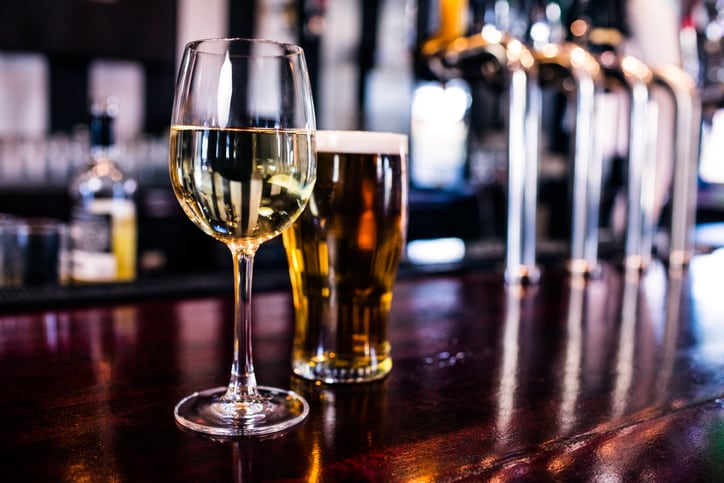After weeks of negotiations, the US and EU yesterday announced a trade agreement.
Most European goods will now face a 15% US tariff, down from the threatened 30%.
EU steel and aluminum will continue to face a 50% tariff.
But the details are still being thrashed out: and there’s the hope of zero-for-zero tariffs on certain products.
Wine and spirits associations have long championed the mutually beneficial relationship of trade across the Atlantic.
Furthermore, the EU and US are the biggest trading partners for many categories (the US, for example, is the largest market for Champagne and Scotch whisky exports; while Europe is the largest market for American whiskey), meaning the imposition or otherwise of tariffs can reshape whole category prospects entirely.
Important trading partners
The US and EU are the two biggest economies in the world: with $1.7 trillion in trade per year across a market of 800 million people.
A single 15% tariff rate has been agreed for the 'vast majority' of EU exports, including cars, semiconductors and pharmaceuticals.
There is also a list of zero-for-zero tariffs on certain strategic products: incuding aircraft and component parts, certain chemicals, certain generics, semiconductor equipment, certain agricultural products, natural resources and critical raw materials. And the two sides are working to add more products to the list.
The Distilled Spirits Council of the United States is ‘optimistic’ that a zero-for-zero situation is on the table for EU and US spirits producers.
The council points to tariff history: in 2018, American Whiskey exports to the EU were hit by tariffs: and the category’s largest export market plunged 20%.
In contrast, the suspension of tariffs in 2022 saw American Whiskey exports surge nearly 60%.
“For more than 20 years, large and small distilleries across the US have flourished under a tariff-free relationship with the EU, our largest export market. It’s time to get back to toasts not tariffs,” said DISCUS CEO Chris Swonger.
The Comité Européen des Entreprises Vins (CEEV), which represents Europe’s wine industry, is calling for wine to be one of them.
The wine trade between the EU and the US is a long-standing, mutually beneficial economic relationship, says CEEV: supporting thousands of businesses and jobs (For every $1 Europeans make selling wine to the US, the American distribution and hospitality sectors make $4.50, calculates the organization).
That’s particularly pertinent when it comes to high-end, geographically protected wine and spirits than can’t be made elsewhere: such as Champagne, Prosecco and Scotch whisky and Irish whiskey.
A potential 15% tariff would be difficult for producers to support: particularly when combined with a 15% currency shift, says the CEEV.
Export volumes could decline by as much as 10% immediately, with long-term damage to market share and trade relationships, it adds.
It is ‘cautiously optimistic’ about the path moving forward.
“It is encouraging to know that we may be just days away from putting an end to the trade uncertainty that has weighed on our sector in recent months.” said Ignacio Sánchez Recarte, Secretary General of CEEV.
“However, the consequences of failing to include wine in the final zero-for-zero deal would be severe.”
Like wine and spirits, The Brewers of Europe hope to see beer on the zero-for-zero list. But it also has another dynamic to contend with: a 25% tariff on aluminum.
“The United States is the biggest export market for European breweries in value terms, accounting for over a quarter of total European beer exports,” explained Simon Spillane, senior director of advocacy and public affairs at The Brewers of Europe.
“The imposition of a US import tariff on beer will therefore have serious negative repercussions for European brewers too.
“The Brewers of Europe is consequently calling on EU and US negotiators to put beer on the zero-for-zero tariff list and also remove canned beer from the aluminium derivatives tariff that is still set at 50%.
“Doing so will benefit US consumers, create value in the US retail and hospitality sector, boost the collaboration between EU and US brewers and provide a lifeline to the European brewers that depend on the US market for their business.”



